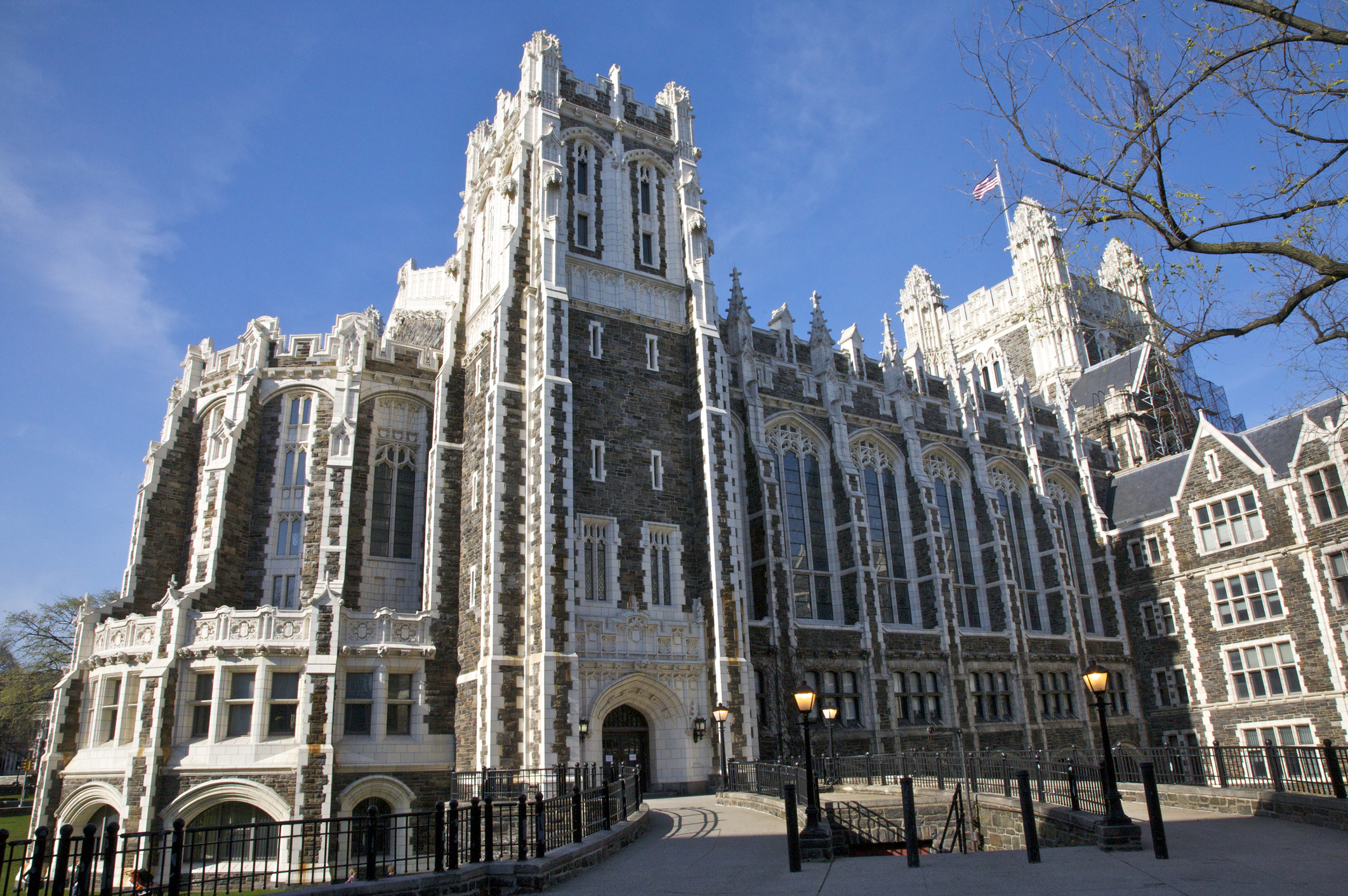What Are the SUNY Schools?
- SUNY’s 64 campuses offer a sweeping catalog of 7,000 degree and certificate programs.
- Review our list of SUNY schools, their enrollment data, and their average tuition prices.
- Explore the SUNY application process and tips to consider before you apply.
New York State’s many attractions include the nation’s largest university system. The State University of New York’s (SUNY) 64 campuses offer strong academics and affordable education through 7,000 degree and certificate programs.
You can begin paving your career path through SUNY’s on-campus programs and 700 online majors. Location is everything! Attending a school in New York puts you closer to job and networking opportunities in the Northeast Corridor, spanning several states. We take a look at the SUNY schools, how much they cost, and how to apply.
Featured Online Programs
The SUNY Schools: Complete List and Overview
Approximately 1.3 million students pursue degrees, certificates, and continuing education credits at SUNY. The system’s 64 campuses include community colleges, research institutions, and liberal arts colleges located throughout the state. They also include programs hosted on the campuses of private institutions like Cornell University and Alfred University.
Comparatively, City University of New York’s (CUNY) 25 schools offer academic programs primarily for students living in New York City’s five boroughs. CUNY, the nation’s largest urban public university, was designed for open access. Some SUNY institutions can be more selective and most are situated outside of NYC. We’ve compiled a list of all SUNY schools to help you choose the right college for you.
Reputation can vary from campus to campus, but the system is known for offering a quality education at an affordable price. While SUNY colleges may not have the same level of name recognition as some of the legacy Ivy League or private institutions, many of them are highly respected both nationally and internationally,
said Lonnie Woods, a college admissions expert and professor in the arts administration master’s program at Teachers College, Columbia University.
| School | Total Student Enrollment | Avg. Annual Net Price | Acceptance Rate | Location |
|---|---|---|---|---|
| Cornell University | 25,898 | $26,060 | 7% | 69,195 |
| Binghamton University | 18,312 | $19,535 | 42% | 41,642 |
| Stony Brook University | 25,710 | $17,213 | 49% | 40,513 |
| Alfred University | 1,813 | $26,183 | 51% | 7,091 |
| Fashion Institute of Technology | 8,125 | $20,900 | 53% | 4,669 |
| SUNY New Paltz | 6,964 | $19,592 | 58% | 13,228 |
| SUNY Cortland | 6,690 | $18,304 | 60% | 11,711 |
| SUNY at Albany | 16,658 | $17,714 | 68% | 25,976 |
| SUNY Brockport | 6,424 | $16,261 | 68% | 7,683 |
| University at Buffalo | 32,099 | $18,524 | 68% | 30,939 |
| SUNY College at Plattsburgh | 4,474 | $17,625 | 70% | 6,872 |
| SUNY College of Environmental Science and Forestry | 1,976 | $20,928 | 70% | 2,466 |
| Farmingdale State College | 9,314 | $8,111 | 73% | 6,426 |
| SUNY Oneonta | 5,430 | $18,129 | 73% | 9,895 |
| SUNY at Purchase College | 3,182 | $19,434 | 75% | 5,747 |
| SUNY College at Geneseo | 4,184 | $19,557 | 75% | 9,069 |
| SUNY Maritime College | 1,427 | $19,712 | 80% | 1,337 |
| SUNY Polytechnic Institute | 2,842 | $13,799 | 82% | 2,919 |
| SUNY College at Potsdam | 2,427 | $15,310 | 83% | 3,170 |
| SUNY College of Technology at Delhi | 2,612 | $16,314 | 83% | 3,621 |
| SUNY Oswego | 6,906 | $17,376 | 83% | 12,555 |
| SUNY at Fredonia | 3,491 | $15,795 | 85% | 4,597 |
| SUNY Buffalo State University | 6,445 | $13,812 | 86% | 12,292 |
| SUNY College at Old Westbury | 4,270 | $12,329 | 92% | 3,825 |
| SUNY College of Technology at Canton | 2,836 | $14,049 | 95% | 2,280 |
| Empire State University | 9,407 | $9,704 | 100% | N/A |
| Cayuga County Community College | 3,479 | $7,282 | N/A | N/A |
| Clinton Community College | 994 | $8,204 | N/A | N/A |
| Columbia-Greene Community College | 1,447 | $6,738 | N/A | N/A |
| Dutchess Community College | 7,047 | $8,443 | N/A | N/A |
| Finger Lakes Community College | 5,331 | $12,082 | N/A | N/A |
| Genesee Community College | 4,323 | $7,921 | N/A | N/A |
| Jamestown Community College | 3,756 | $10,104 | N/A | N/A |
| Jefferson Community College | 2,292 | $11,355 | N/A | N/A |
| Monroe Community College | 8,283 | $7,037 | N/A | N/A |
| Niagara County Community College | 3,838 | $6,677 | N/A | N/A |
| North Country Community College | 1,604 | $13,578 | N/A | N/A |
| SUNY Adirondack | 2,662 | $9,362 | N/A | N/A |
| SUNY Broome Community College | 5,409 | $8,572 | N/A | N/A |
| SUNY College of Technology at Alfred | 3,348 | $17,262 | N/A | N/A |
| SUNY Corning Community College | 3,786 | $8,258 | N/A | N/A |
| SUNY Morrisville | 1,803 | $16,070 | N/A | N/A |
| SUNY Westchester Community College | 8,807 | $10,714 | N/A | N/A |
| Tompkins Cortland Community College | 4,442 | $10,919 | N/A | N/A |
How to Apply to SUNY Schools: 3 Steps
Now that you’ve explored the SUNY campuses and know which ones you would like to attend, it’s time to start sending out applications. Applying to college may seem like a daunting task, and that’s why we’ve broken down the main steps.
1. Fill Out Your Application
SUNY makes applying easy. With just one SUNY application you can apply to multiple campuses in the system. The first step is to create an applySUNY account by supplying your email address and password.
The SUNY application consists of several pages of questions you must fill out. You can preview the information required on the application by first completing an application. Some students choose to use Common App, but you’ll have to apply to each school individually, and not all SUNY schools accept this format.
2. Submit Your Application
Once you’ve carefully completed the application, it’s time to pay the application fee of $50 per school. You can save money by taking advantage of SUNY’s Free App Weeks. During these weeks in October, you can apply to up to five SUNY schools for free.
If you’re affiliated with the military, qualify as low-income, in foster care, or attending designated high schools — you get seven free apps. Students using Common App can also participate in Free App Weeks. Don’t forget to attach any additional documents before you apply. Make sure to check each school’s application deadline.
3. Consider Applying for Scholarships
Many students turn to financial aid, such as scholarships, to help pay for their degree. The Excelsior scholarship program provides up to $5,500 to eligible SUNY and CUNY undergraduate students. Eligibility requirements include income disclosure, New York State residency of at least 12 months, and U.S. citizenship or eligible non-citizens.
After you file your Free Application for Federal Student Aid, apply for the Excelsior scholarship. The scholarship does not pay for other college expenses. The application opens in the spring.
Pro Tip: Want advice from an expert? According to Woods, you should study thoroughly prior to applying so that you can make an informed decision. When possible, visit the campuses of the schools you are interested in and/or visit admissions open houses and info sessions to gain more insight from current students.
Which SUNY School Is Right for You?
Picking a school from such a large system may seem tricky. SUNY schools differ in academic programs, enrollment size, location, and even how much tuition you pay.
Is one of SUNY’s 30 community colleges right for you? Some students earn an associate degree or a block of credits at a community college and transfer to a senior SUNY college. This gives you a head start on your education at two-year colleges that offer cheaper tuition.
SUNY’s two-year institutions, such as SUNY Adirondack and SUNY Westchester Community College, can make you job-ready with just a certificate or associate degree. If four-year colleges are more appealing, explore the different academic programs and locations at four-year SUNY campuses to narrow down your options.
Finally, look at your budget and each school’s tuition rates to see if there’s a match. When in doubt, work with a guidance counselor to help you make the right choice.
As Woods summed it up, The decision should be based on a thorough assessment of what each [school] has to offer in terms of programs, cost, location, and the overall college experience.
Frequently Asked Questions About SUNY Schools
What does SUNY stand for?
SUNY stands for State University of New York, a system of state-supported institutions located across New York. SUNY is the nation’s largest comprehensive university system and includes community colleges, liberal arts colleges, and research institutions.
How many SUNY schools are there?
SUNY’s 64 campuses serve approximately 1.3 million students pursuing credit-bearing and non-credit programs. The schools vary in size and provide programming on campuses in city, rural, and suburban areas. Most New Yorkers can find a SUNY campus within a 15-mile radius.
What is the biggest school in the SUNY system?
SUNY at Albany is the biggest college in the SUNY system, enrolling approximately 17,000 students in 200 undergraduate and graduate programs. A major research college, SUNY at Albany offers 300 student clubs and organizations and boasts 18 NCAA Division I athletic teams.
What is the cheapest SUNY school?
SUNY Corning Community College is the cheapest community college with an average annual tuition of $8,258. Comparatively, SUNY College at Old Westbury is the cheapest four-year college with an average annual tuition of $12,329.
With Contributions By:

Lonnie Woods III has over 10 years of professional higher education experience. As a student affairs administrator, professor, and professional development consultant, his work and research examine the career competencies of students pursuing the arts.
Woods has worked at Pratt Institute, Maryland Institute College of Art, Brooklyn Academy of Music, New York University, The George Washington University, and The Whitney Museum of American Art. He holds a bachelor of science in fine art photography from Towson University and a master of arts in higher education and student affairs from New York University. Lonnie currently serves as a professor within the arts administration master’s program at Teachers College, Columbia University.
Woods is a paid member of the Red Ventures freelance Education Integrity Network.





